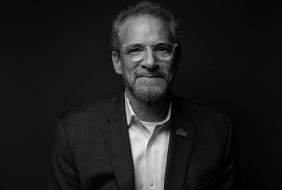The week of June 22nd had two blockbuster Supreme Court rulings that reverberated across the country. During what will surely prove to be a historical week, the court affirmed the Affordable Care Act and its implementation. In addition, SCOTUS eloquently stated the right of all people to marry whomever they love.
Indeed, two important and powerful rulings.
While monumental in our progress forward, what many did not see was that nestled in between these historic decisions was a much less heralded fair housing case called Inclusive Communities v. Texas Housing and Community Affairs Department.
An overview of the case by Enterprise Community Partners states:
“The case focused on the use of ‘disparate impact’ analysis for fair housing complaints, which examines the discriminatory effect of a particular policy or action regardless of the intent behind. Specifically, the plaintiffs in the case claimed that authorities in Texas unnecessarily directed affordable housing developments to distressed communities—rather than high-opportunity areas—in allocating Low-Income Housing Tax Credits.”
By definition, disparate impact “refers to policies, practices, rules, or other systems that appear to be neutral, but result in a disproportionate impact on protected groups.” In its 5-4 ruling, the Supreme Court upheld disparate impact as a legal tool for proving housing discrimination—meaning not only is overt discrimination in the housing market illegal, but joining in its illegality are seemingly neutral policies that have a disproportionately negative impact on protected classes.
In his majority decision, Justice Anthony Kennedy wrote that “residential segregation by race was declared unconstitutional almost a century ago, but its vestiges remain today, intertwined with the country’s economic and social life.” Justice Kennedy continued that the Fair Housing Act has a “continuing role in moving the nation toward a more integrated society,” but that it is not “an instrument to force housing authorities to reorder their priorities.” Furthermore, Kennedy stated the Act does not “decree a particular vision of urban development…and it does not put housing authorities and private developers in a double bind of liability, subject to suit whether they choose to rejuvenate a city core or to promote new low-income housing in suburban communities.
The Court’s ruling underscores the false choice between investing in distressed communities or in neighborhoods of opportunity. The Court recognized that local housing authorities and state allocating agencies must continue to provide housing that meets a diverse array of community needs, taking into account a range of factors including market costs, traffic patterns and the need to preserve historic buildings. In doing this work, Kennedy further urges that these agencies should not be punished for investing in communities that “have been long segregated, according to the majority opinion.”
This ruling affirms what we at Beyond Housing already know – Home Matters. In the event that policy in any jurisdiction does indeed contribute to a “disparate impact” then it should be changed. What is true is that whether a family moves to a stable community or into a newly developed home where a comprehensive effort is underway to improve all the facets of that community – we should support both opportunities. The research is in on so many subjects related to the importance and power of home on the success of children, families and broader neighborhoods. Both the revered MacArthur Foundation, and the newly formed Home Matters, websites have all the research we need to affirm that the connectivity home to success in education, health, jobs and economic development. Our collective charge is to find the resources to make home happen for everyone in our region and our country.




